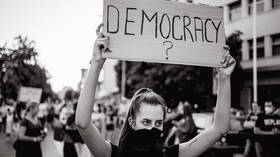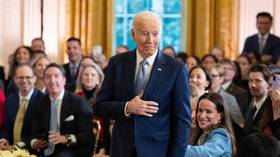If university students self-censor out of fear, freedom of speech in wider society is doomed

We live in a world where more than a quarter of university students are scared to voice their views in case their opinion provokes the wrath of the campus language police.
According to a survey just published by ADF International, 40 percent of students fear that their careers will be adversely affected if they speak out.
The survey confirms what previous studies have noted. Last year a report by the British think-tank Policy Exchange found that only four in 10 Brexit supporters felt able to express their views in their university class.
Once upon a time, universities were places where free and open debate dominated campus culture. Students held forth with the most outrageous views and everyone knew that they did not have to conform to received wisdom. That world has vanished in recent decades. Speech is heavily policed by zealous activists, whose censorious project is supported by campus administrators.
As soon as students arrive on campus, they learn that any sentiment that goes against the grain of woke culture will be met by the remark, “you can’t say that!” In such circumstances far too many students opt for an easy life and hide their true opinions.
The unravelling of the freedom of expression on campuses was brought home to me in February 2018. After I gave a public lecture on the subject of ‘Socialisation and Fear’ at York St John University, a young professor came up to me and said “you forgot to mention the biggest fear we face as teachers – the fear that many students have of opening their mouth.”
At another public event, where I gave a lecture advocating free speech, a group of students came up to me to signal their agreement with my arguments. However, they also stated that while they were in full agreement with the principles of free speech, they found it difficult to always practice it. One of them told me “I often keep my mouth shut in a seminar to avoid hassle.”
Some students openly acknowledge the fact that they self-censor and feel powerless to stand up for their views. As one second year male undergraduate explained, “people are all too ready to savage you if you use the wrong word.” Another student confided that “sooner or later someone will object that I offended them.”
The practice of self-censorship is, if anything, more pervasive in the United States. A survey, published by the Harvard Crimson, the university’s student newspaper, indicated that a significant portion of this year’s graduating class were self-censoring their opinion and not debating in public. According to the report, around two-thirds of students who were surveyed had “at some point chosen not to express an opinion in an academic setting out of fear that it would offend others.” The survey indicated that 78 percent of registered Republicans said they “withheld opinions in class” compared to 59 percent of registered Democrats and 73 percent of registered Independents.
In case you believe that self-censorship is not your problem because you don’t work in a university, think again. The policing of language, which began in higher education is now institutionalised throughout society. Both private and public sector organisations have adopted rules and codes of practices that ensure “people mind their language.” Consequently, self-censorship is widely practised.
Also on rt.com Oxford’s calls for MORAL quarantine isn’t only attempt to undermine free speech, it’s DEGRADATION of academic teaching & learningOne reason why opinion polls so often fail to predict the outcome of an election, such as the recent American presidential election or the Brexit referendum, is because many people self-censor. It is worth noting that in the United States, the one group that was most likely to lie to pollsters and deny that they were voting for Trump in November, were white college educated males. Why? Because having been exposed to the elite narrative of what can and what cannot be said in their universities, they drew the conclusion that it was safer to keep their mouth shut about their voting intention.
As an academic, I have drawn the conclusion that self-censorship is potentially more damaging to university life than the formal regulation of a campus life. The act of self-censoring means accepting the condition of being without a voice and giving up without a fight.
Self-censorship also empowers zealous advocates of identity politics. Many of the foolish outbursts of intolerance on campuses occur because activists know that their behaviour is unlikely to be criticised by their peers. Most students are far from happy with the policing of language on campuses but unfortunately instead of speaking up, they prefer to keep their opinions to themselves. Until students, who are disturbed by the weaponisation of identity politics find their voice campuses will continue to be subjugated to the forces of woke intolerance.
Think your friends would be interested? Share this story!
The statements, views and opinions expressed in this column are solely those of the author and do not necessarily represent those of RT.
















